Dental implants are an ideal solution for patients, who are either missing teeth or those who need to replace extracted teeth, for a natural look. The good news is that dental implant procedures are so flexible that the talented dentists at Washington Center for Dentistry can use them to solve almost all problems related to missing teeth. Compared to dentures, dental implants are secure, where patients will have a restored sense of confidence and will be able eat whatever foods they choose, speak clearly, and not fear dentures slipping loose when smiling or talking.
Not only a restorative dentistry procedure, dental implants can give your a gorgeous smile as well. While a dental crown or bridge may not be an option, a dental implant is another tool in our cosmetic dentistry repertoire to give you teeth that are functional and aesthetically pleasing. Call our office in Washington, DC to learn more.
There are basically 2 types of dental implants used today:
Oral implants are offered to take the place of any quantity of missing teeth, ranging from one tooth to an entire arch. You may be an excellent candidate for oral implants if you have experienced tooth loss, need tooth extractions, or are having problems with your current replacement. To be successful, implants require enough bone support, healthy gums, and a reliable oral environment, and certain individuals may require prior care before they are considered proper candidates. Dental implants might not be ideal if you are an expecting mother, smoke cigarettes, or have particular medical concerns. At your visit, our Washington, D.C. team can help you determine if dental implants are a match for you and your needs.
You will be able to do all the things you could not do because of loose-fitting dentures, sliding removable bridges, or gaps between teeth.
You will be able to smile bigger and brighter.
You will no longer hide your smile behind your hand or closed lips.
You will be able to speak clearly.
You will no longer have a lisp or mumble because you are hiding spaces between your teeth or because you fear your loose dentures will show.
You will be able to eat whatever foods you want— with complete self-confidence! You will easily eat apples or other hard foods once impossible to deal with because of loose teeth or loose dentures.
You will have the same bite force as with your natural teeth.
You will enjoy better overall health and appearance.
You will notice an improved structure and profile of your face. This is a welcome change since your missing teeth caused bone loss in your jaw, leading to sagging muscles, jowls, a pointy chin. The bone loss also affects gum tissue as well as muscles and nerves throughout the mouth. Remaining teeth might also loosen.
You will appreciate the good news that dental implants may stop, or even reverse, the pervasive bone loss from missing teeth!
You will benefit from bone grafting that replaces lost bone and restores aesthetic structure to the face.
You will also benefit as your implants apply force to your bone the same way teeth do. That stimulation is what keeps your bone strong, dense and healthy.
You will welcome that fact that since your bone doesn’t know the difference between a real tooth and an implant, it responds to the stimulation of the implant by increasing in mass.
You will note that implants also help to avoid the need to cut down other teeth to support a bridge or a crown.
You will enjoy caring for your implants just like natural teeth, flossing and brushing, but avoiding problems with decay or sensitivity.
Your looks have a big impact on your life. But, the decision to start the dental implant treatment process also involves the critical decision to restore your mouth to optimal health and function. There are also many cosmetic benefits of dental implants that you’re sure to enjoy. Regardless of why you choose single tooth dental implants, you’ll be happy to know the 4-step process is easier than you think!
STEP 01 – Evaluation
Your implant doctor will perform a comprehensive exam of your jaw, your mouth and your teeth to see if dental implant treatment process is the right solution for you.
Your doctor will use a 3D CT scan to analyze the anatomy of your jaw and evaluate the density of your bone. If there is not enough bone tissue to assure a successful result, a bone graft may need to be done.
Your doctor will evaluate the overall structures and dimensions of your mouth.
Your doctor will review your overall health, taking into consideration medical conditions, such as problems with disease or infection. He will learn about your current oral hygiene status.
Your doctor will discuss the varied types of implant treatments that will help achieve your goals. He will determine if implants are right for you, if you will need a bone graft to assure the right amount of bone tissue for implant surgery.
STEP 02 – Treatment Plan
An important step in the dental implant treatment process is to treat the presence of any gum disease or infection. To assure the best result, your mouth must be in optimal health.
Your doctor maps out a complete plan to restore your mouth to its most pleasing look as well as its highest level of function.
The unique nature of your jaw and mouth calls for a customized plan just right for you!
STEP 03 – Treatment
One of the happiest advances in dental implant treatment process today is that no matter what your timeline for treatment, you won’t have to put up with temporary gaps in your smile.
During the entire dental implant treatment process, we make sure you are never “without teeth.”
In one appointment, our surgeon places the implant into the jaw bone that will become the new root for your new tooth—with its top below the gum line.
Then your surrounding bone goes to work to fuse with the implant root, and we can attach an abutment directly to the implant “root.”
When healing has progressed, we take new impressions to begin to make your crown for your new tooth.
When your mouth is healed and ready, the new crown is made. We attach the final crown to the implant.
STEP 04 – Results and Follow-up Care
Bask in the amazing results of dental implant treatment process with dental function restored.
Savor the feeling of well-being from the boost to your appearance, your smile.
Enjoy a restored feeling of self-confidence and self-esteem.
Prepare to begin your customized plan for follow-up care, which begins up to a few months later.
Schedule appointments so we may continue to follow your overall dental health and monitor the status of your dental implants during your 6-month and annual check-up visits.
Eat foods without hesitation.
Enjoy life again!
G.H.
Yahoo
Anonymous
Healthgrades
Anonymous
Healthgrades
D.
Healthgrades
C.M.
M.N.
M.O.
Out-Patient
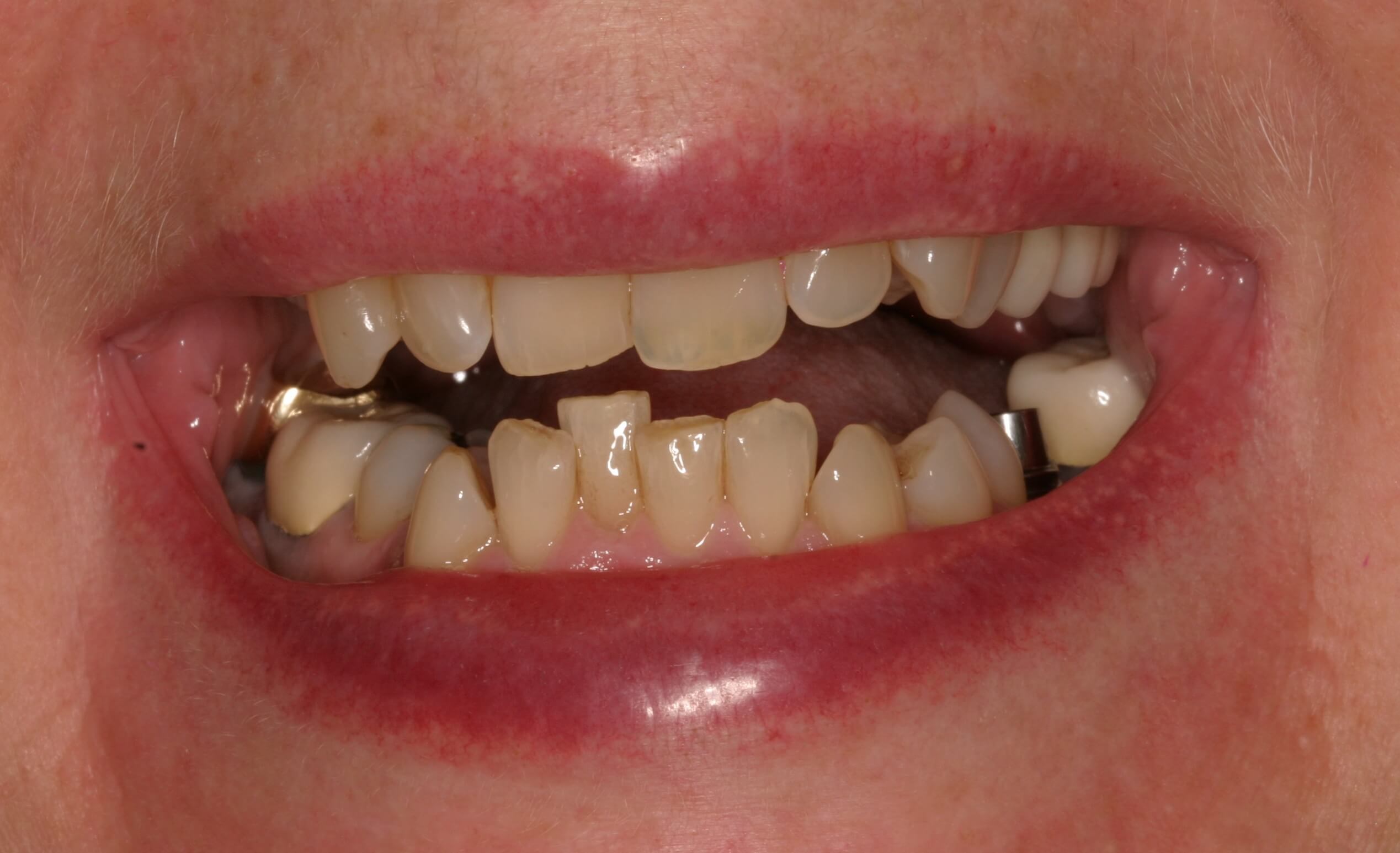
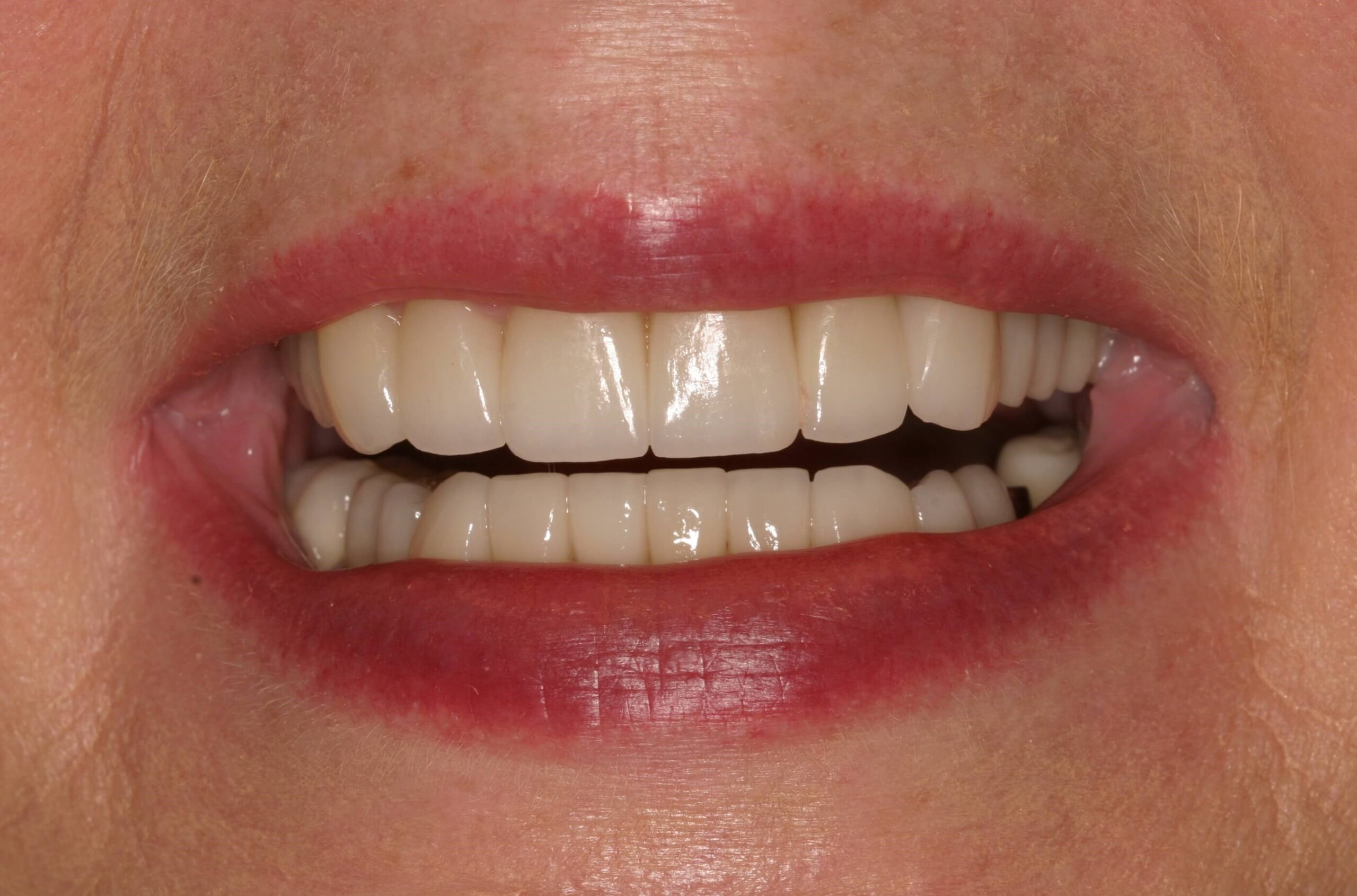
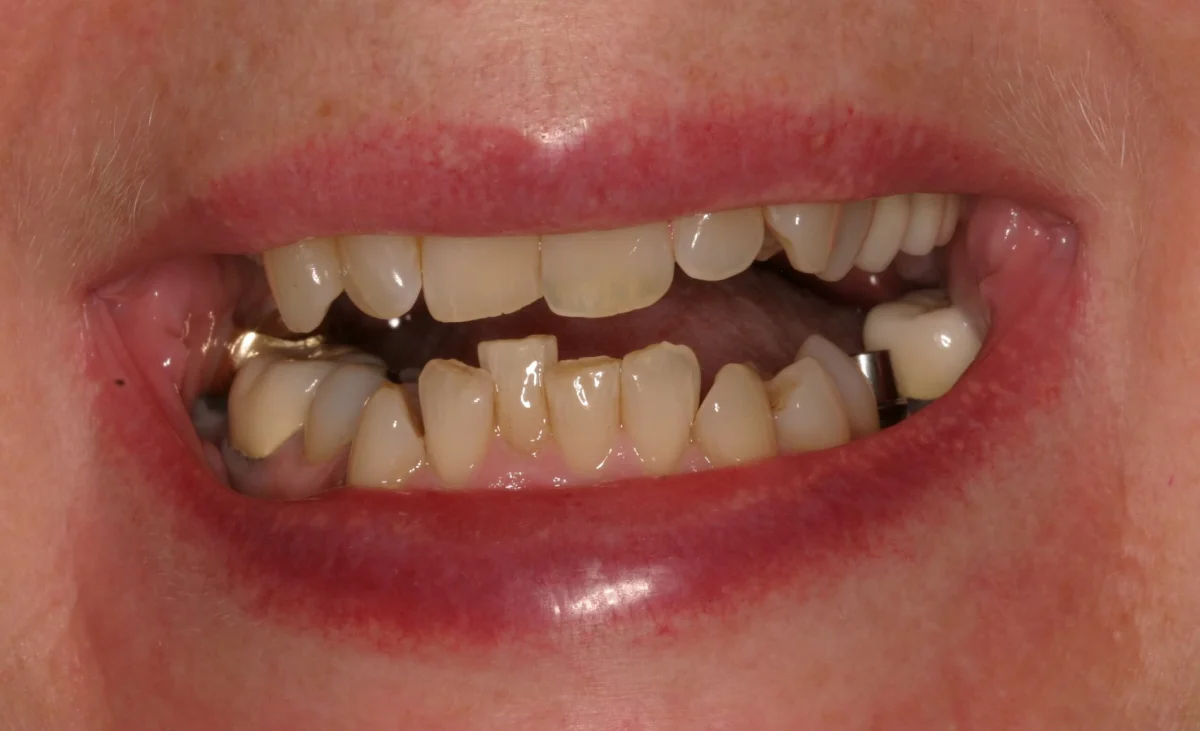
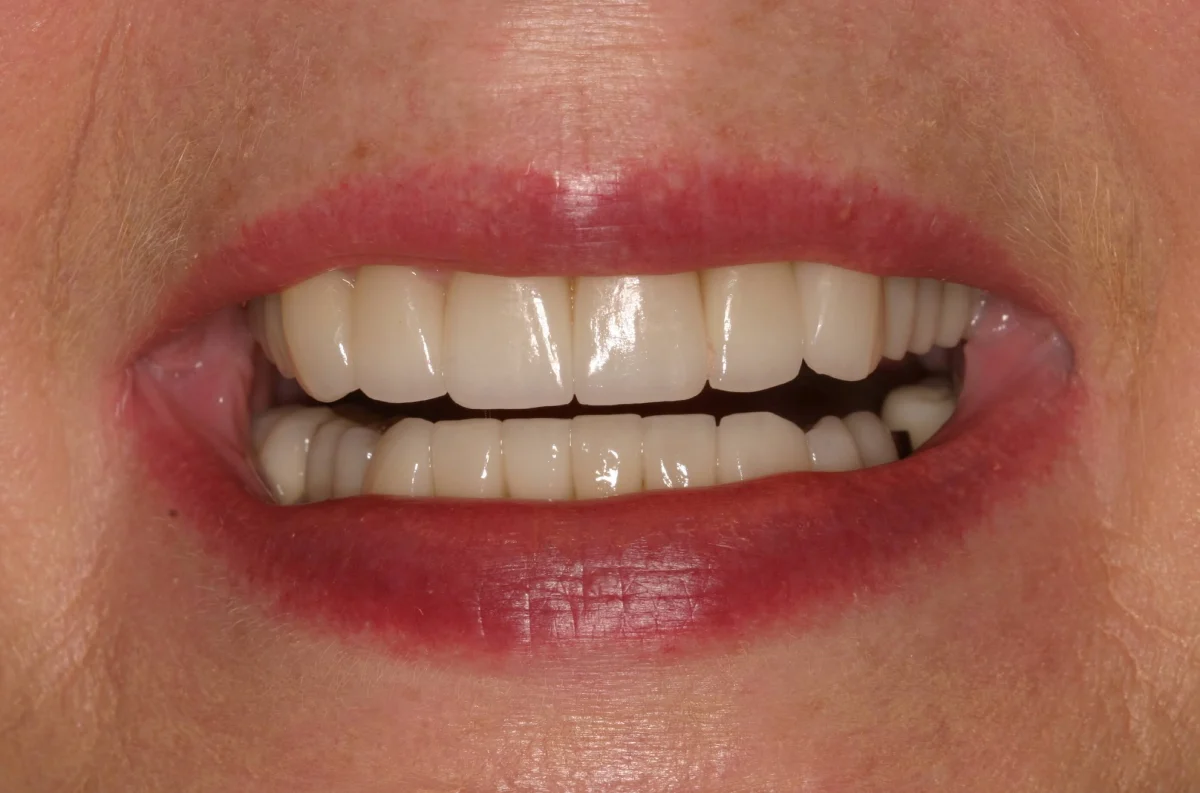
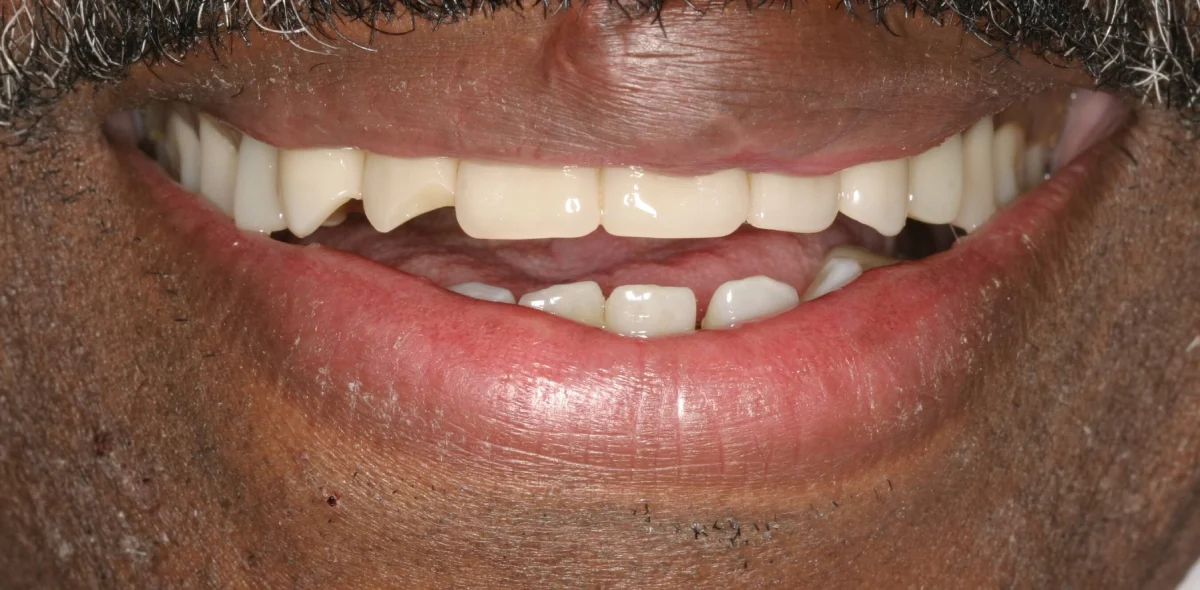
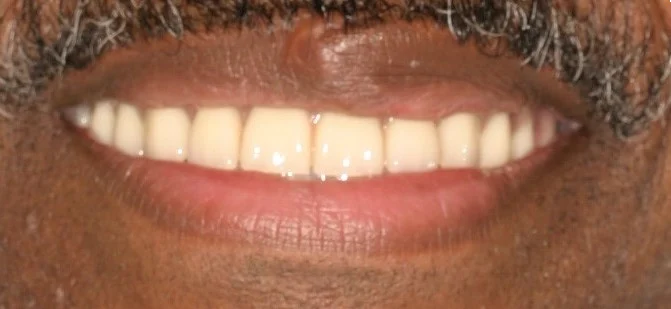
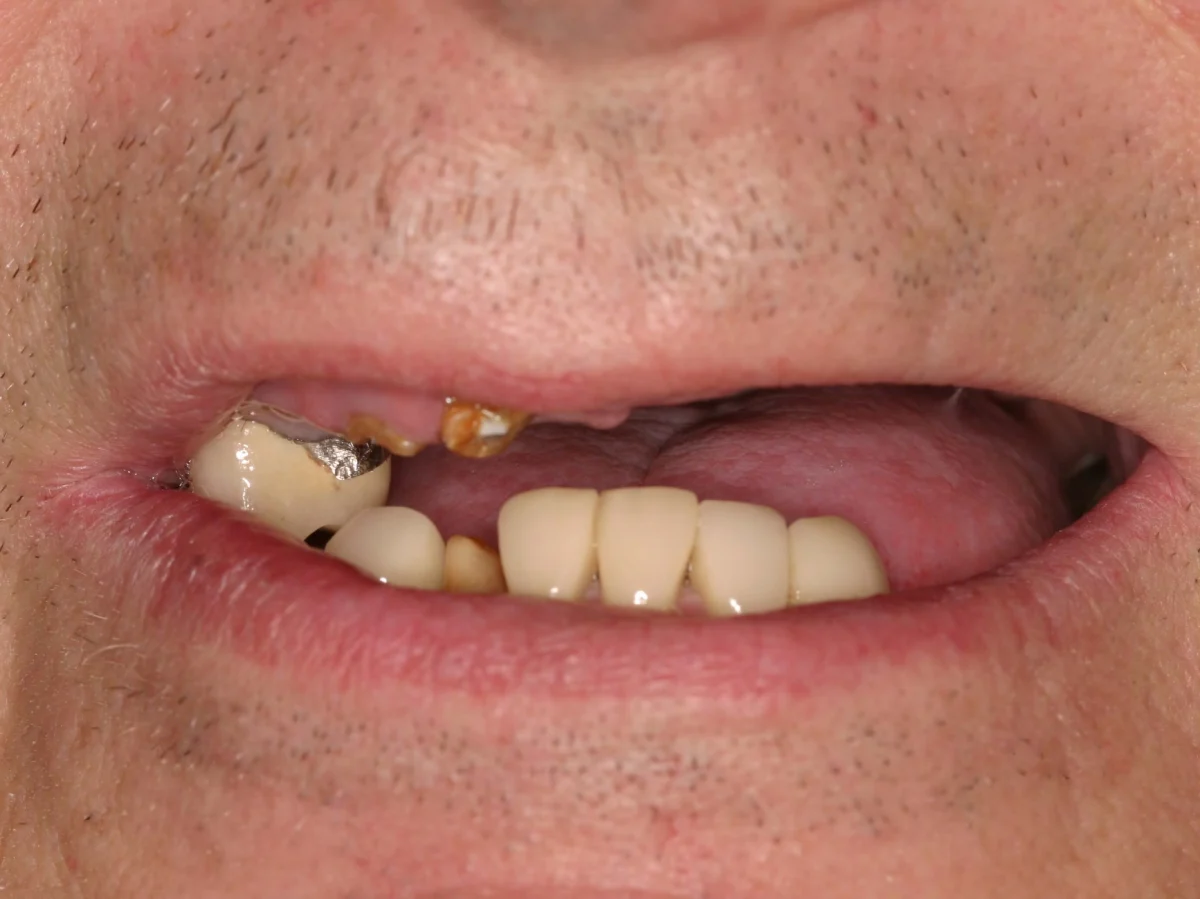
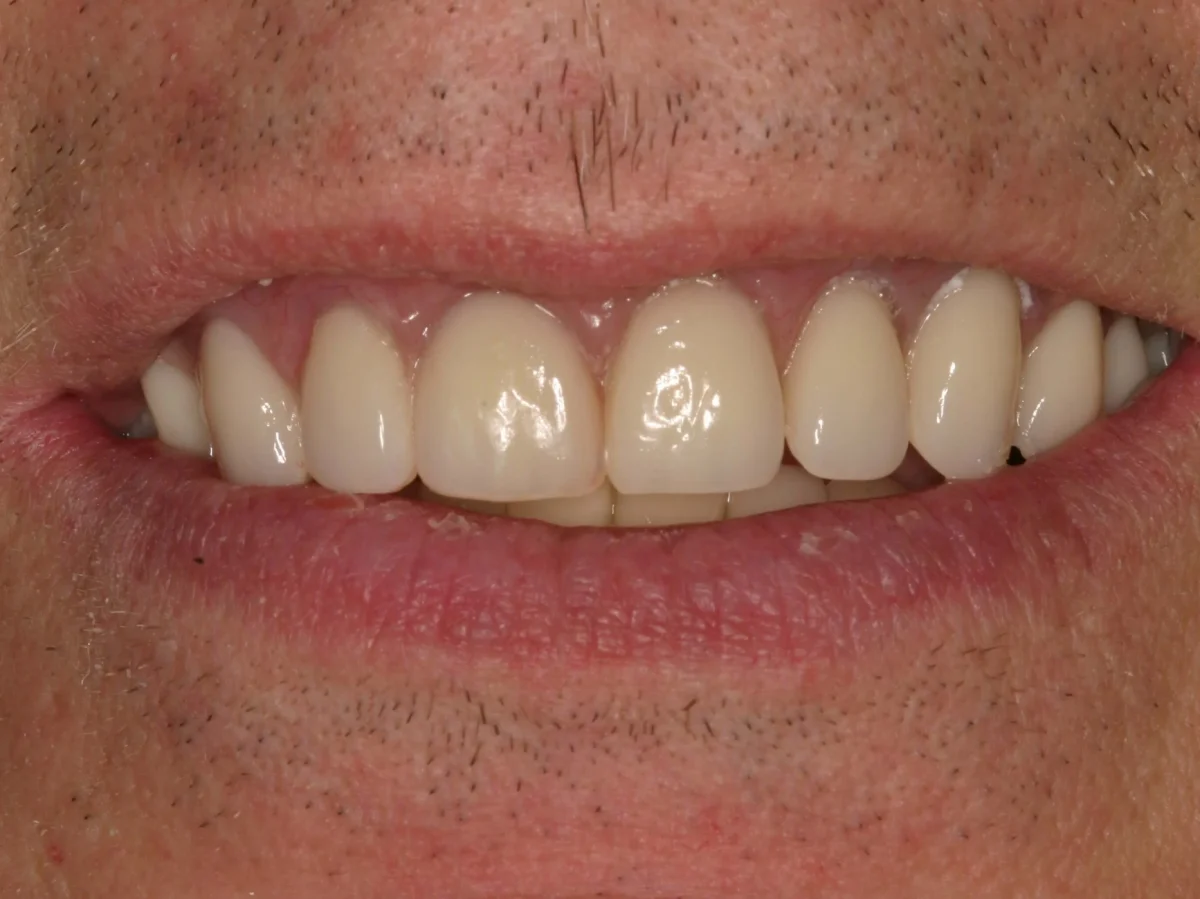
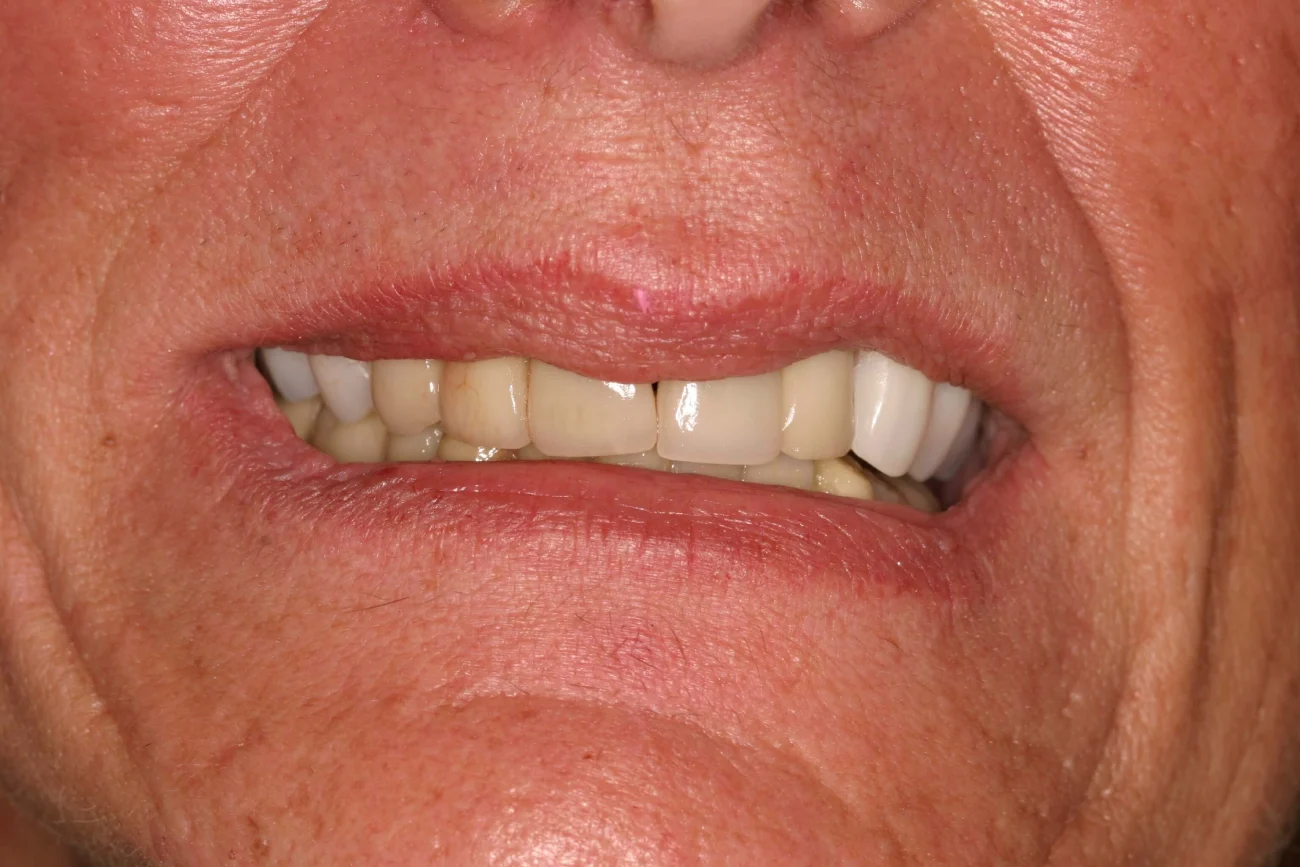
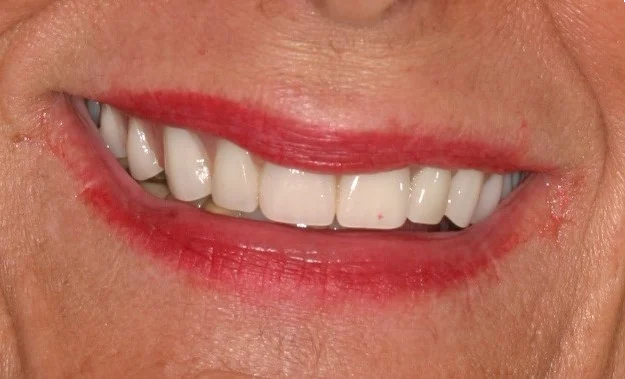
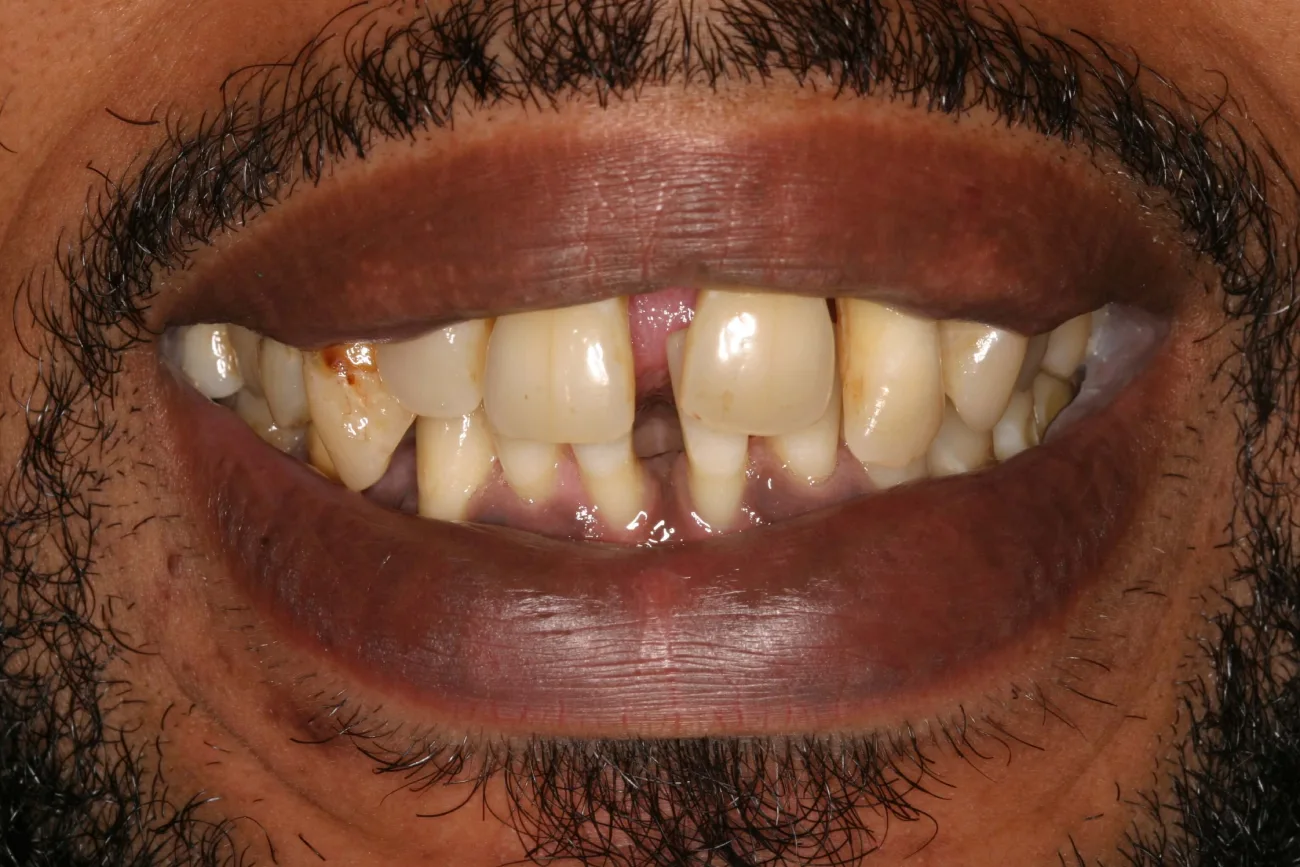
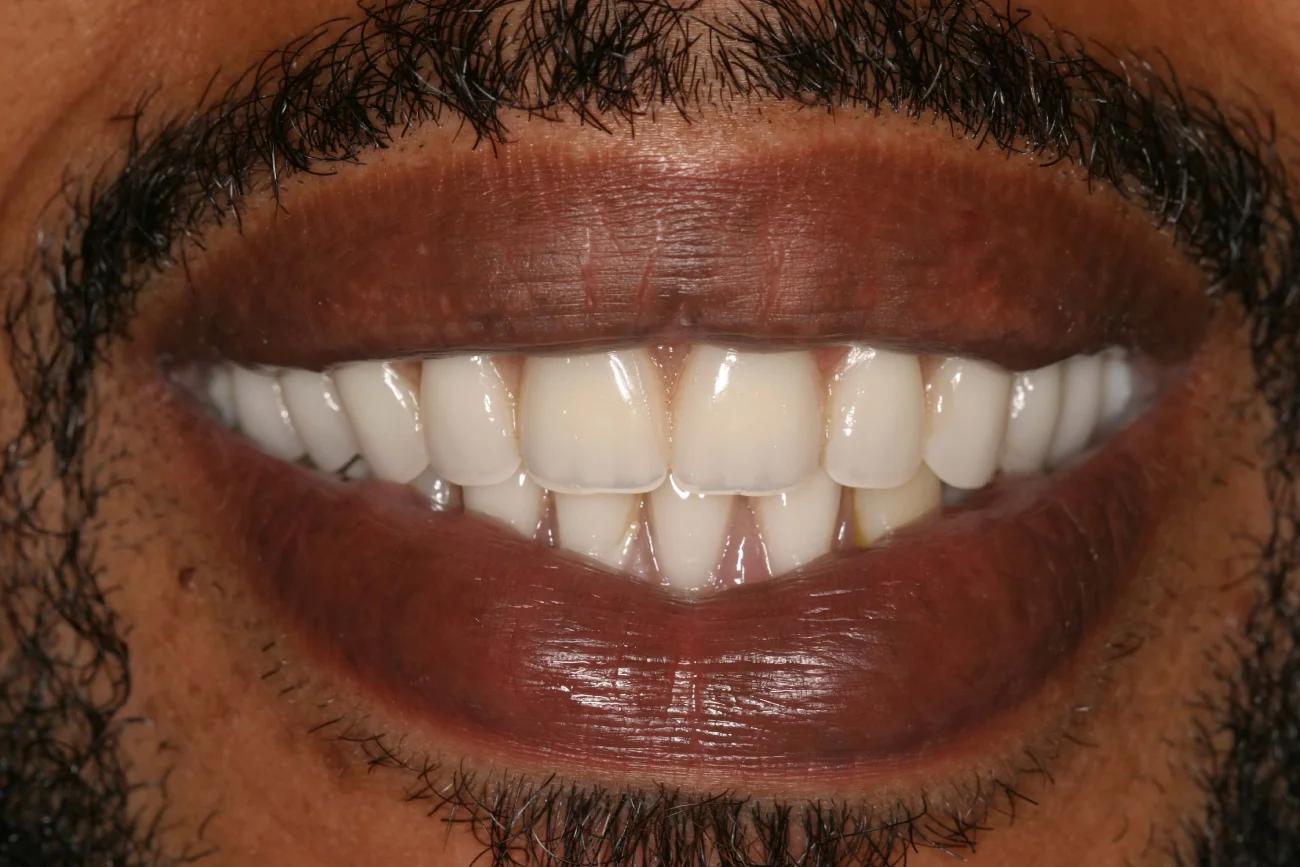
No, in general, most patients do not find the dental implant process painful, even though it is a more extensive procedure. During the initial procedure to install the anchor posts, the treatment area is completely numbed with a local anesthetic. We also offer sedation options to increase comfort and reduce anxiety. After the initial procedure, while the gums are healing, there will be some minor discomfort, soreness, bleeding, and tenderness, but it is typically easily controlled with over-the-counter pain relievers (check with your doctor first) and ice packs.
About six months. Dental implants are placed in two procedures. The first procedure is the most extensive, with titanium anchor posts placed in your jaw. You will wear a temporary crown, bridge, or denture as your gums heal. After you’re healed (about six months), you’ll return to Washington Center for Dentistry to have your permanent appliance fixed to the anchors in a shorter, easier procedure.
While the anchor posts in your jaw are permanent, the crown, bridge, or denture affixed to it has a lifetime of about 10 – 15 years before it may need to be adjusted or replaced. With regular brushing and flossing paired with regular checkups at Washington Center for Dentistry, patients can increase the functional lifetime of their dental implants.
No, everyone will not be a candidate for dental implants. Candidates for dental implants must have healthy gums and enough bone density in their jaw to hold the implants. Patients who do not have proper bone density can consider bone grafting procedures to improve their viability for dental implants. Typically patients with periodontal disease, chronic conditions, or who have had head or neck radiation therapy may not be candidates for dental implants.
The experienced dentists at Washington Center for Dentistry love to transform smiles with dental implants. If you are suffering from missing teeth, this is definitely an option you want to consider. Not only can we replace your teeth with durable implants, but we take the time and extra care to make sure that all implants are natural and fit in seamlessly with your natural teeth. You will be left with a beautiful, dazzling smile that you’re sure to want to show off all the time! We suggest that you contact our office in Washington, DC as soon as possible to set up your consultation.
"*" indicates required fields
1430 K Street NW, 8th Floor Washington, DC 20005
© Copyright 2025 Washington Center for Dentistry